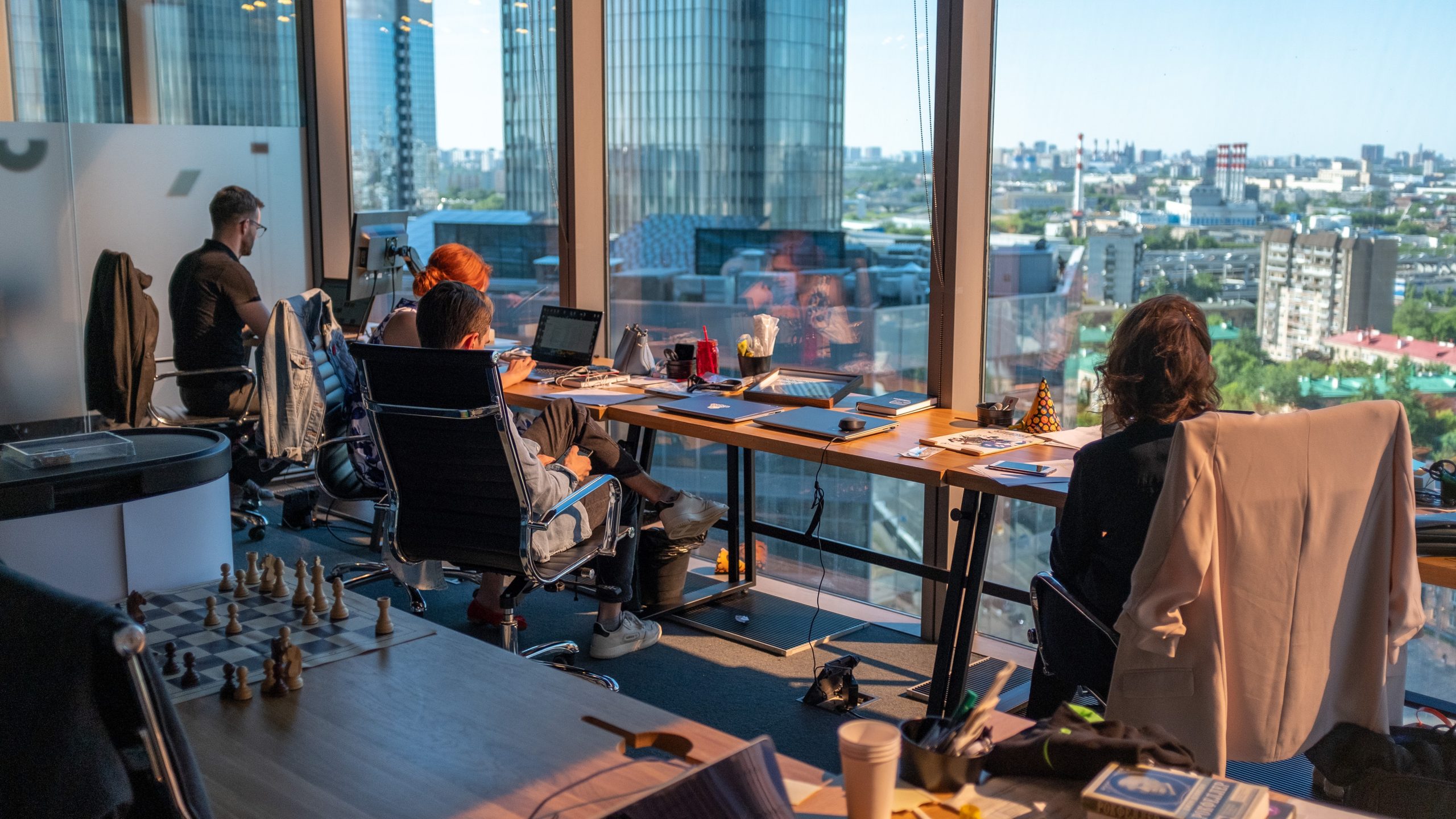While many CEOs are still debating with employees about how often they should be back in the office, I am taking an optimistic leap in time to try to predict what could become a flourishing hybrid world of work… Welcome to 2050.
Hybrid work is now accepted, and employees have complete freedom to decide where and when they work. Presenteeism is a thing of the past. Workers have become fulfilled team members who carry on different activities, professional and personal, in parallel. The 4-day working week and the unlimited holidays have become widespread. But workers no longer have to deal with an overwhelming workload Their employers have understood that it is no longer a time for fight for power but for trust, and that they can only hire and retain their employees if they offer them fulfilling working conditions that respect their work-life balance.
The injunctions around the time spent in the office seem to be from another age: managers have revisited their managerial approach and are positioning themselves as charismatic leaders, supporting the development of their employees. They attempt to shape engaging and inspiring missions, allowing each person to continuously learn, and to make their personal values resonate with those promoted by the organization. Their approach to performance is the opposite of that of 2022: no matter how many hours they spend behind their PCs, everyone is free to set their own pace, as long as the objectives are met. The latter are defined in consultation with the team, and re-evaluated continuously, in order to phase in the best possible way with organizational life and market reality.
2050 is the optimal point of employees’ empowerment: managers and offices are now a support for performance, and no longer the usual framework that made interactions feel so constrained and impersonal. Top management has become one of the biggest considerations of a committed and responsible employer. It is now keen to offer employees a working environment that is tailored to the needs of each individual: no more impersonal open-spaces like in the 2020s, offices have become lively and vibrant places, where there is always something happening and where company workers and local residents alike enjoy spending time together and crossing their visions and skills, in a peer-to-peer mentoring and a co-development dynamic. Offices are no longer an impenetrable fortress disconnected from the reality that surrounds them.
They have become the vibrant heart of small ecosystems, scattered in the heart of the city, but also in the suburban areas and throughout the country. The big cities are no longer congested with traffic jams. We go to the office because we want to, because we know we will find committed people there, inspiring places, opportunities for interaction that will nourish us both professionally and personally. It doesn’t matter how many days you spend at the office, it’s the quality of the social tie that is at the heart of everyone’s attention.







